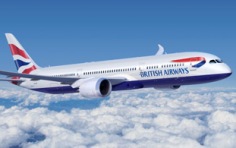Air cargo continued its strong revival in July, with a 22.7% year-on-year improvement ininternational traffic, according to figures published today by the International Air Transport
Association (IATA).Although the year-on-year comparisons for July showed slightly lower growth than IATA’s Junecargo data, which showed a 26.6% increase, IATA said this “slowdown” was due to the fact thattraffic was already starting to recover by July 2009. Global cargo demand in July was 4% higherthan the pre-crisis levels of early 2008, continuing a post-recession trend achieved for the firsttime in May.
However, the recovery remained “two-speed” last month, with weaker growth by European carriersof 12.1% compared with a 25.3% increase by Asia-Pacific carriers and 27.1% growth recorded by NorthAmerican airlines.
IATA said it expected a slowdown in air freight markets in the second half of the year as theeconomic cycle moves into a new phase. “Extraordinary freight growth rates in late 2009 and early2010 were supported by businesses re-stocking their inventories,” the association said. “With there-stocking cycle completed, air freight demand will be driven by consumer spending and businesscapital expenditure.”
Weak consumer confidence in Europe and North America would be a negative factor, IATA warned. “But strengthening corporate profits are supporting an increase in capital expenditure that couldcontinue to drive robust freight growth,” it pointed out.
This expectation of a slowdown in growth mirrors the forecasts of express operators such as UPS,which in its second-quarter results predicted that the recent 15% growth of its express exportvolumes would moderate in the second half of the year.
The recovery in air freight volumes, combined with a reduction in capacity, has led to increasesin air freight rates this year, with further rises expected during the coming winter peakseason.
DHL Express recently told CEP-Research that it was expecting further tightening of third-partyair freight capacity during the peak season, leading to some increases in costs, but it was notexpecting anything unusual for the time of year.












